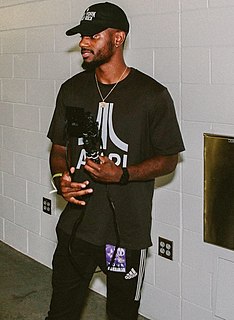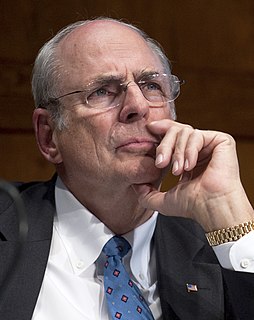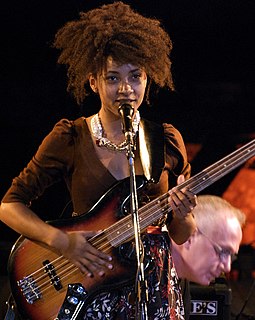A Quote by Ryan Gosling
I feel there is something nice about not talking. Like you can say more by actually saying less.
Related Quotes
When you are trying to impress people with words, the more you say, the more common you appear, and the less in control. Even if you are saying something banal, it will seem original if you make it vague, open-ended, and sphinxlike. Powerful people impress and intimidate by saying less. The more you say, the more likely you are to say something foolish.
There is such a problem with racism, so to actually just say it and have so many people of colour message me and thank me for saying something... I remember when I used to cry about it to my manager I used to be like: 'Why do I feel like this?' and she'd never say it, and I'd never say it. It was really strange.
I think, ultimately, the problem with something like this is that you actually have so many more opportunities to say something than you actually have things worth saying. And then, as an artist who doesn't want to do bad work, gosh, how do you fill up all that space when you really don't have anything actually worthwhile to say? And that's what makes the job tough, because the fans get mad - "That's not funny," or "You've been sucking for several months now." And you go, "It's not my fault! I'm trying."
My first album was mainly dealing with street issues, and it was 'coded': it was called 'Reasonable Doubt.' So the things I was talking about... I was talking about in slang, and it was something that people in the music business was not really privy to. They didn't understand totally what I was saying or what I was talking about.
Since becoming a mother, I'd say it's more so affected my general outlook on things. I'm less worried about everything. Less scared to make those numbers that people think are standard or less scared to create something that maybe I don't think people are going to like, because it's all about if I like it. I need to be happy.
People are more used to seeing men who are masters at an instrument than women. When people say, 'Oh, she plays like a dude,' it's usually dudes who are the ones saying it. They're saying, 'Oh, she's as good as us.' Of course, that's a stupid statement. It's totally stereotypical to say, 'We have an advantage on this, and if anyone else can do it well, it's only because they're like us.' I think more men are starting to learn that this attitude is totally hollow and based in imagination. As more women are involved in music, this kind of thing gets said less and less.
Cut like crazy. Less is more. I've often read manuscripts - including my own - where I've got to the beginning of, say, chapter two and have thought: “This is where the novel should actually start.” A huge amount of information about character and backstory can be conveyed through small detail. The emotional attachment you feel to a scene or a chapter will fade as you move on to other stories. Be business-like about it.
If you want to write about a person who isn't nice, people say, "This is a bad book. It's about somebody I couldn't stand." But that's not the point. You don't have to like a character to like a book. Most of the time, people would misjudge and say, "I didn't like the book." No, you didn't like the character. That doesn't make it any less interesting of a book. In fact, to me, it makes it more interesting.




































